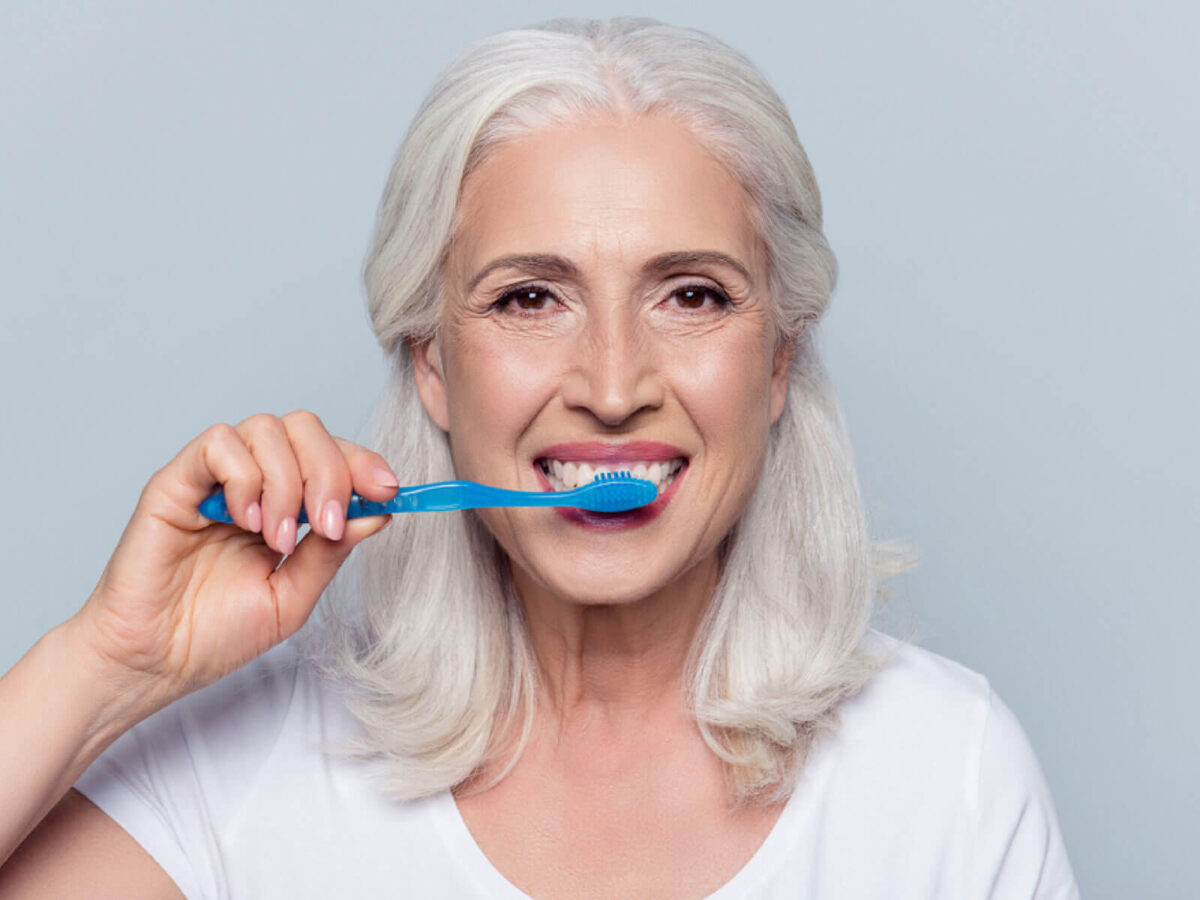Blog
Dental hygiene tips for healthy teeth & gums

Maintaining Healthy Teeth And Gums In Your Golden Years
Maintaining good dental health becomes increasingly important as we age. The condition of our teeth and gums can influence our overall well-being, impacting nutrition, communication, and even self-esteem. While aging can bring unique oral health challenges, developing preventive habits will help preserve a vibrant and healthy smile far into your elderly years. This blog will review essential strategies and practices for keeping your teeth and gums healthy as you age.
Ways To Maintain Healthy Teeth And Gums
Schedule Regular Dental Check-Ups:
Regular dental check-ups are crucial for excellent oral health at any age, but they are particularly important in your golden years. Dental appointments allow your dentist to detect and treat issues early on, preventing more serious complications later. Aim for twice-yearly dental check-ups or as recommended by your dentist.
Maintain Good Oral Hygiene:
Consistent and good oral hygiene is key to preventing dental problems. This includes:
- Brushing your teeth at least twice daily with a soft-bristled toothbrush and fluoride toothpaste. Brushing removes plaque and bacteria from the teeth, reducing the risk of cavities and gum disease.
- Flossing is essential for cleaning between teeth and along the gumline, where your toothbrush might not reach. Make flossing a routine to keep your gums healthy and prevent decay between your teeth.
- Include an antibacterial or fluoride mouthwash in your regimen. This can help eliminate bacteria and strengthen your teeth.
Treat Dry Mouth:
Older adults may experience dry mouth, where saliva flow decreases. Saliva is vital for neutralizing acids, preventing tooth decay, and maintaining overall oral health. Drink plenty of water, chew sugar-free gum, and consult your dentist about products that can help alleviate dry mouth symptoms.
Eat a Well-Balanced Diet:
Nutrition is crucial in maintaining good dental health. A diet rich in vitamins and minerals, especially calcium and vitamin D, is necessary for strong teeth and gums. Include a variety of fruits, vegetables, lean proteins, and dairy products in your diet. Avoid sugary foods and beverages, as they can lead to tooth decay.
No Tobacco:
Tobacco use is a significant risk factor for gum disease, tooth loss, and oral cancer. It also affects the outcome of various dental procedures. Seek assistance to quit smoking; your dentist can advise you on methods that can improve your chances of success.
Address Oral Health Issues Promptly:
It’s crucial to address any changes in your dental health, such as bleeding gums, chronic bad breath, or changes in the color of your gums, as soon as possible. These could be signs of gum disease or other oral health issues that, if untreated, could lead to more severe problems.
Consider Dental Treatments:
As you age, you may face specific dental issues that require treatment. Some common dental procedures for older adults include:
- Dentures: Dentures can restore your ability to chew and speak if you have lost teeth. Modern dentures are more comfortable and natural-looking than ever.
- Dental Implants: These provide stability and function similar to natural teeth and are a more permanent solution for missing teeth.
- Periodontal Treatments: Gum disease is common among older adults. Periodontal treatments can help manage and treat gum disease, allowing you to keep your natural teeth.
- Orthodontic Options: Straightening your teeth isn’t just for kids. Adults looking to improve the alignment of their teeth can consider Invisalign or other orthodontic solutions.
Stay Active and Hydrated:
Overall health and oral health are closely connected. Regular physical activity and staying hydrated contribute to overall health, which benefits your dental health. Exercise and hydration support a healthy immune system and can reduce the risk of oral health issues.
Stay Informed:
Keep up-to-date on oral health issues that may be more common among older adults. Understanding the changes your mouth may undergo as you age can help you address any issues proactively. Your dentist can provide valuable information and resources to assist you in your oral health journey.
Conclusion
Maintaining strong teeth and gums in your golden years is crucial for oral health. Consistent dental care, a healthy diet, and proactive measures to address oral health issues all contribute to a healthy, confident smile. By adopting these practices and staying engaged with your oral health, you can enjoy the benefits of a healthy mouth and continue to smile confidently into your senior years. It’s always possible to prioritize your oral health, and your dentist is your partner in achieving and maintaining a beautiful, healthy smile at any age.
